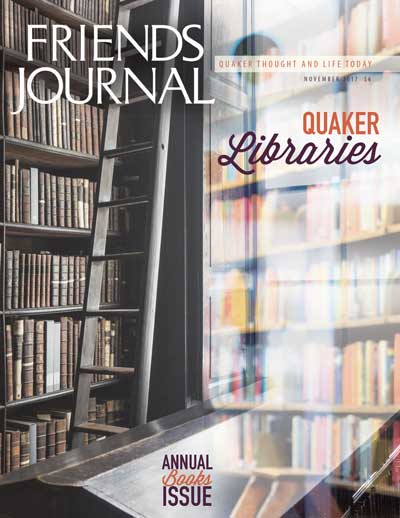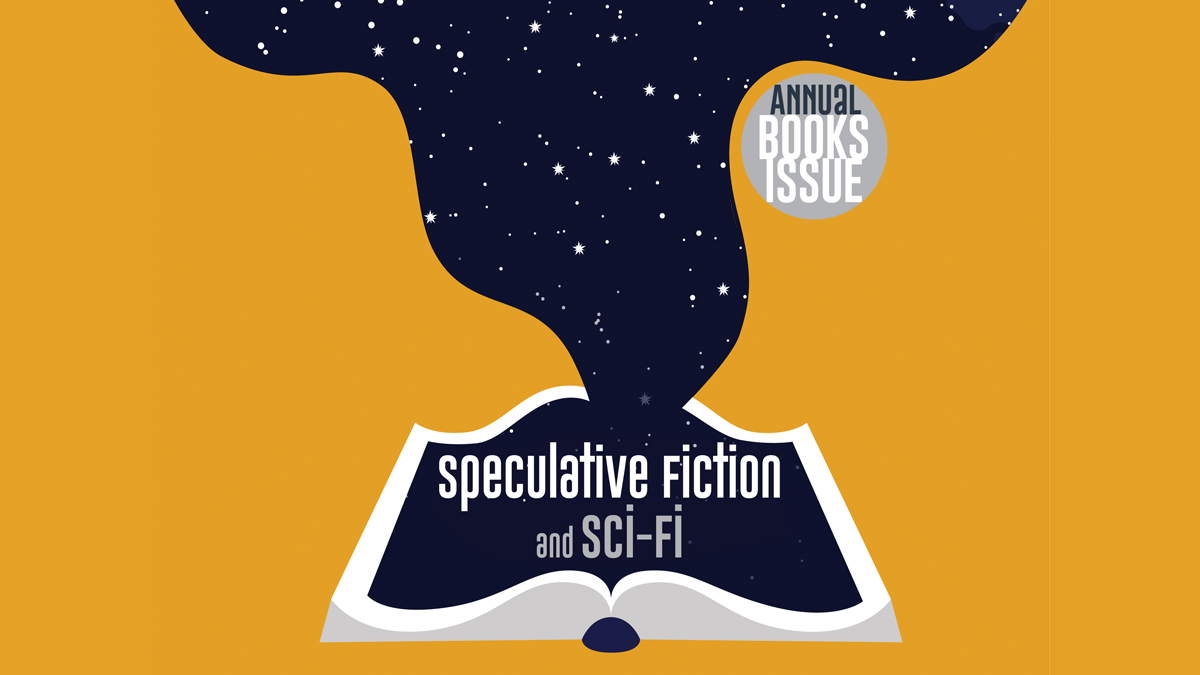Karie Firoozmand Interview

Please introduce yourself, and explain what your role is at Friends Journal, and how long you’ve been in that role.
I’m a convinced Friend. And my membership is in Stony Run Meeting in Baltimore Yearly Meeting; Stony Run is in the city of Baltimore. I think I’ve been at Friends Journal since 2011 where my role is choosing books to review.
What I do during the workday is make a living: I’m an executive assistant at Johns Hopkins University in Baltimore. But it’s really the things I do outside of that work that make my life: my family, my meeting, doing this volunteer work with Friends Journal, and with committees at my monthly meeting and yearly meeting.
What is your approach to deciding which books we end up reviewing?
I see the column as a very precious, very small space. It’s not a lot of space when you think about all the books that we could review. So I look at the ones that you in the office send me in boxes. And I keep my ears open about new publications.
We have a couple dozen reviewers; around ten of them are very regular. And then some others are available but not all the time. I’ve enjoyed getting to know what topics different reviewers are interested in. Developing those relationships has been really rewarding for me.
How do you recruit new reviewers?
I recruit people by asking them if they’re interested, and if they are, then I explain the process. Once they’re reviewers, I match them with books based on their stated interests. Because we have so many reviewers, I’m able to work with people’s windows of availability and areas of expertise and interest.
There are different topics that Quakers are working on right now, and it’s important to have reviewers who are people of color, people of different ages, as well as people of various sexual identities. Diverse reviewers can add to our wisdom and advance the conversation among Friends. Interested readers of this interview should reach out to me.
Because Friends have been a community with primarily a European background, we have a lot of learning to do about what it means when we say we want to be diverse. We have a lot to learn, and I’m hoping the Books column is one way that we can do that.
What makes putting together a book review column for a Quaker audience different or special?
I always keep in mind the fact that there are a diversity of theologies and there are Quakers outside of North America. It’s important that we review books that are broad in their theology; not each book is broad in its theology, but the book review column includes books from different points of view.
When we review books that are secular in nature, we ask the reviewer to make the Quaker connection for us. I hope that the reviews bring across that the selection of books has been carefully curated: we’re putting this in front of you because this book is about a topic that’s important to Quakers, or this book is about a topic that has been important to Quakers for a long time, i.e., the Bible.
Some Friends say we publish too much on social justice topics and not enough theology. And then some people say we should publish more on social justice.
Not every book needs to satisfy every Quaker reader. We need to present books that will appeal to some and not others. You sometimes lose the power in something when you try to make everybody happy at once. We wouldn’t want to miss reviewing a book that has some important teaching, just because it won’t make everybody happy. Not everyone is going to read every book that’s reviewed.
We need to include books that will touch the heart of the experience of one kind of Quaker and not another. And then we need to turn around and touch the hearts of other people’s experiences with books that others wouldn’t like or wouldn’t be interested in. Some might feel a book is too Universalist, and others might feel that a book is too Christocentric. This difference exists in the Religious Society of Friends, and it exists in the Books column too.
What are the three Quaker books you wish existed?
I would like to see three books that would help us understand and learn what we’re really saying when we say that we want to be inclusive and we want to be diverse. Help us understand what we need to do next.
Publishing has changed a lot even in the last few years. There’s a lot more self-publishing and electronic publishing. How has that changed what’s available?
Self publishing creates more of a due-diligence burden for us because we have to check out that material. You don’t have the luxury of knowing that the piece has already made it through a publisher’s editing and selection process. So we have to read more of it and see is this a book that has been adequately edited. Is this a book whose content we think is interesting or relevant enough to be included in that precious, small space that we have?
The good thing about self-publishing is it has created access to getting your words into print if that’s what you want to do.
What about electronic or digital publishing?
Reviewers like having the hard copy book. But as far as patterns in purchasing or whether a book’s availability in electronic format affects a purchaser’s decision about getting it or not, I don’t really know.




Comments on Friendsjournal.org may be used in the Forum of the print magazine and may be edited for length and clarity.